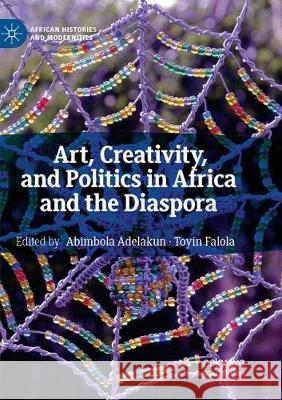Art, Creativity, and Politics in Africa and the Diaspora » książka
topmenu
Art, Creativity, and Politics in Africa and the Diaspora
ISBN-13: 9783030082208 / Angielski / Miękka / 2018 / 335 str.
Kategorie BISAC:
Wydawca:
Palgrave MacMillan
Seria wydawnicza:
Język:
Angielski
ISBN-13:
9783030082208
Rok wydania:
2018
Dostępne języki:
Numer serii:
000745561
Ilość stron:
335
Waga:
0.42 kg
Wymiary:
21.01 x 14.81 x 1.85
Oprawa:
Miękka
Dodatkowe informacje:
Wydanie ilustrowane











